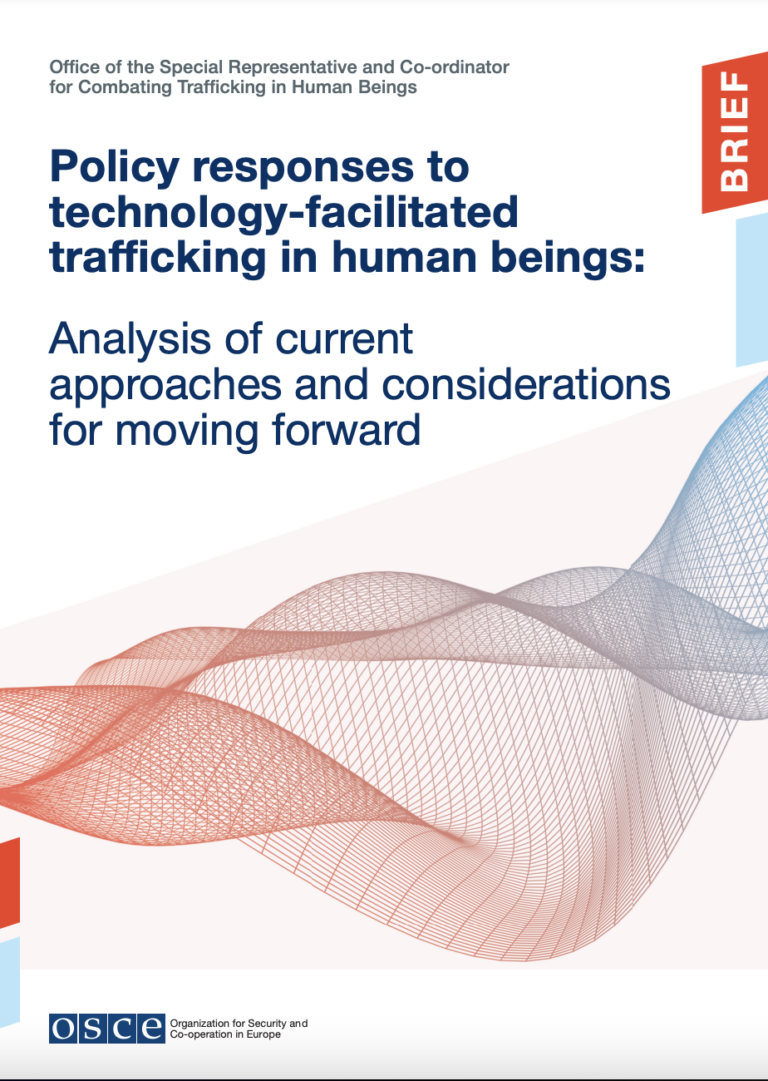Internet and communication technology (ICT) has led to the emergence and rapid expansion of technology-facilitated trafficking in human beings (THB). The misuse of technology has become central to the business model of human traffickers and is present at each stage of the crime from grooming and recruitment, to control and coercion, to exploitation. At the most basic level, ICT – and the internet specifically – facilitates connectivity among perpetrators, between traffickers and their victims, as well as with users of goods and services extracted from victims. As technology becomes ever more central to both licit and illicit marketplaces – a situation accelerated by the COVID19 pandemic – the challenge posed by technology-facilitated THB is set to increase. Effective and comprehensive responses are therefore urgently required. In particular, measures that foster safety and counter the harms – including substantive human rights violations – facilitated by technology are needed.

